Design and Decoration of a Narrow Living Room — Tips for Designers
The color palette of a narrow, long room should be light and pastel. This will help to make the space feel larger. Decorating such a living room entirely in dark tones will worsen the disproportion and create an unattractive impression of the room.
Decoration
The color palette of a narrow, long room should be light and pastel. This will help to make the space feel larger. Decorating such a living room entirely in dark tones will worsen the disproportion and create an unattractive impression of the room. However, it is quite possible to combine light and dark decoration. For example, read more about combining solid wall coverings in interior design.
- By covering the large walls facing each other with light wallpaper and the smaller ones with dark wallpaper, you can expand the narrow part of the room and bring the distant walls closer.
- The room can be divided into two parts, with one part decorated in light tones and the other in more saturated colors.
- It is also important to consider the properties of color: warm tones make things appear closer, while cool tones make them seem farther away. As for patterns, large motifs visually reduce space, whereas small ones do the opposite and serve as a great background. Therefore, large patterns should be placed on larger walls or wall sections.
- A horizontal stripe pattern on narrow walls can help "stretch" them. An interior of a narrow living room in the shape of a long rectangle will not benefit from such stripes if they are placed on longer walls. The best option is solid-colored wallpaper or paint, a subtle pattern, or texture play.
- Mirrors on large walls will expand the space in the desired direction.
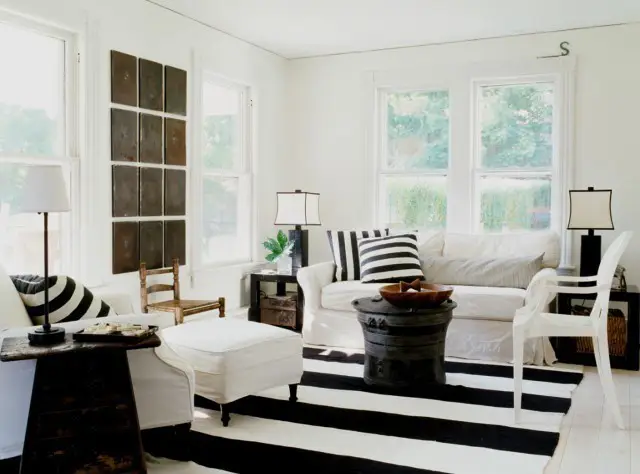
Photo 1 — Idea for Decorating a Narrow Room
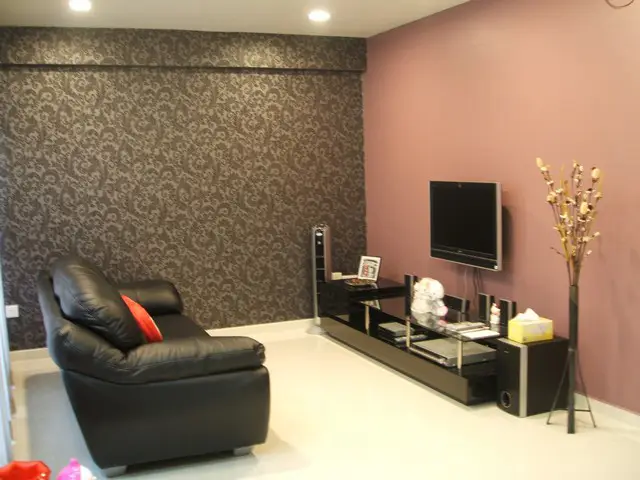
Photo 2 — Idea for Decorating a Narrow Room
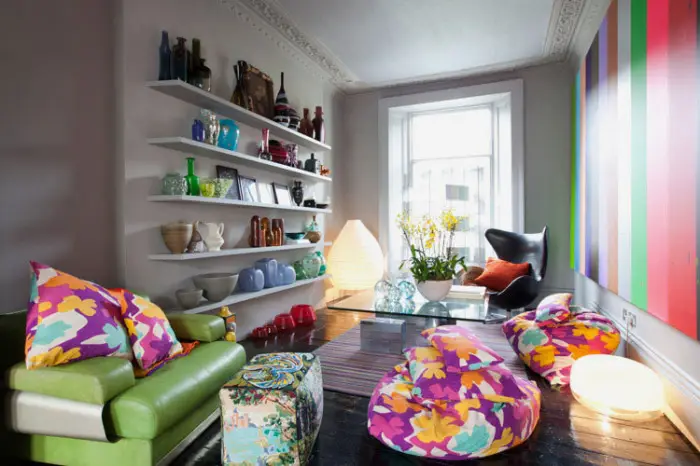
Photo 3 — Idea for Decorating a Narrow Room
Furniture
As mentioned above, the interior of a narrow living room requires abandoning traditional furniture placement against walls.
It is recommended to place the sofa across the room — it will serve as a divider for the elongated living room into separate zones, with the larger one functioning as a guest area and the smaller one — behind the sofa — as a workspace or dining zone. The sofa can also be placed along the window or near a long wall, but in that case it is preferable not to place other large furniture items along the same wall.
When planning the design of a long living room, large and tall walls or "hills" should be avoided. They will make the design of a long living room even more like a corridor. Instead, it is better to buy low, floor-standing shelves or sideboards that can be placed along the walls without taking up much space and leaving room in the upper part of the room, but allowing storage for many items.
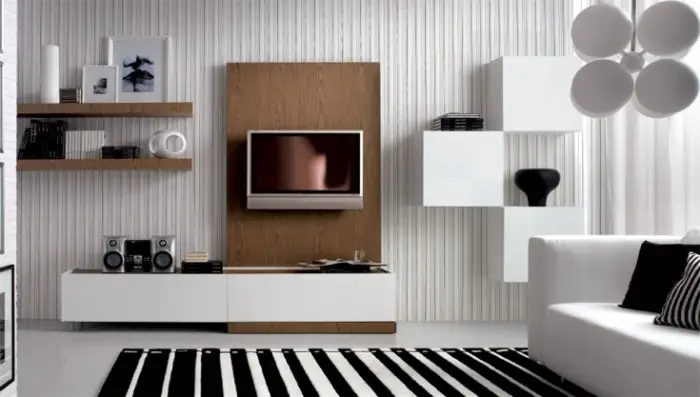
Photo 4 — Design of a Long Living Room
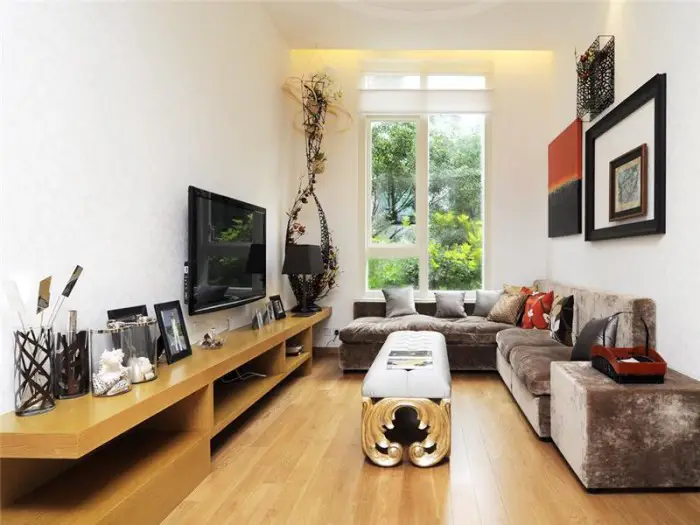
Photo 5 — Design of a Long Living Room
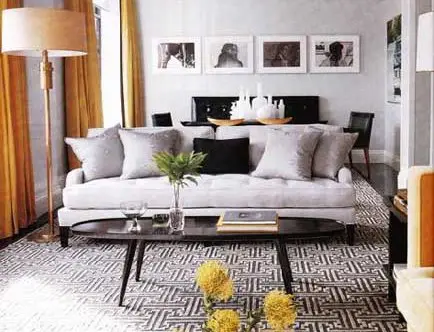
Photo 6 — Design of a Long Living Room
Lighting
For lighting, several different light fixtures can be used, including a chandelier and recessed lights. However, it is better to arrange several light points in a row along the shorter walls. Lighting can also be used to zone a narrow, elongated living room.
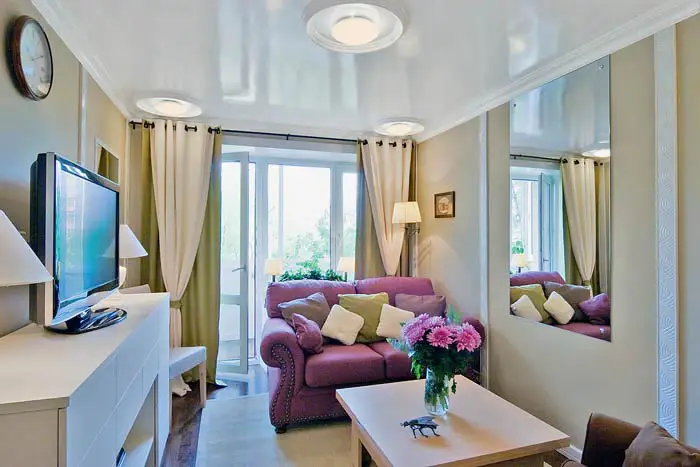
Photo 7 — Lighting in a Narrow Living Room
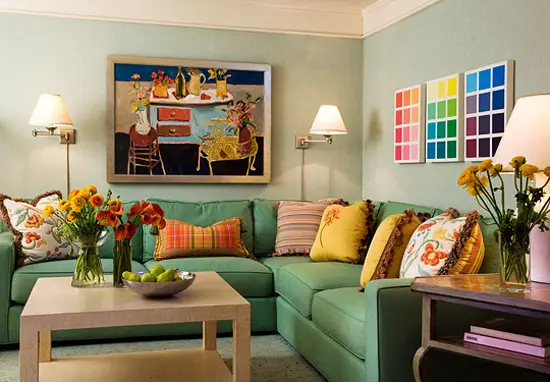
Photo 8 — Lighting in a Narrow Living Room
Regarding functional zones, long straight, semicircular, or irregularly shaped living rooms have their own advantage. They are convenient to zone and, indeed, they require zoning. However, it is not advisable to overcrowd the furniture or use too much different decoration: the area of such a living room can be divided into rectangles and each zone’s content should be carefully planned, determining what can be sacrificed.
For example, in a guest zone next to a dining table, it is possible to forgo placing a coffee table.
Need a renovation specialist?
Find verified professionals for any repair or construction job. Post your request and get offers from local experts.
You may also like
More articles:
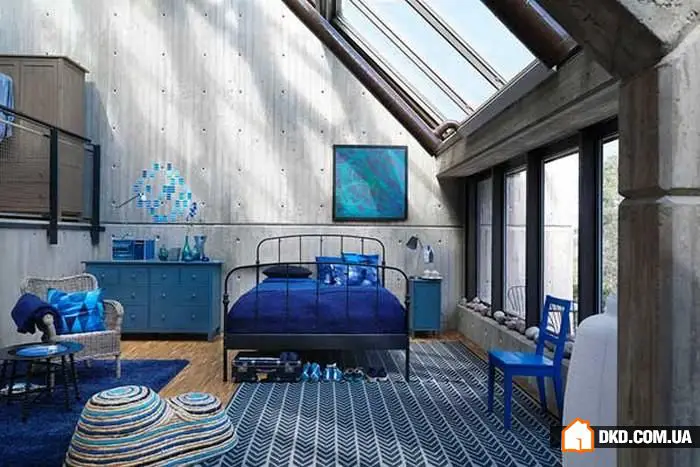 All Shades of Blue in Home Decoration
All Shades of Blue in Home Decoration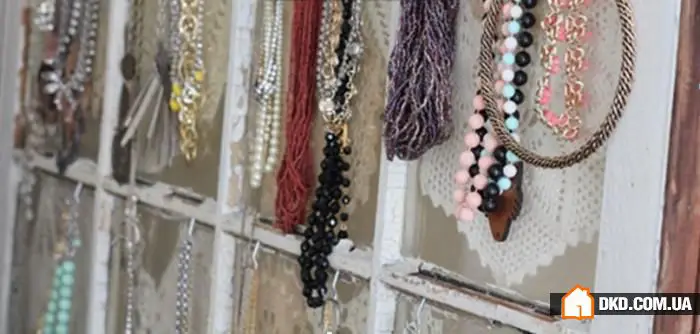 Window Frame for Jewelry - Store Accessories Creatively
Window Frame for Jewelry - Store Accessories Creatively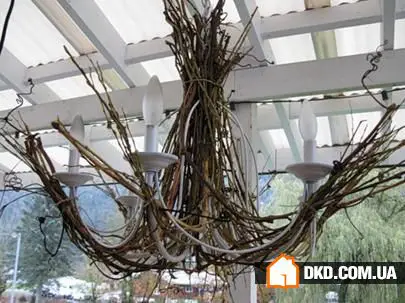 New Life for an Old Chandelier
New Life for an Old Chandelier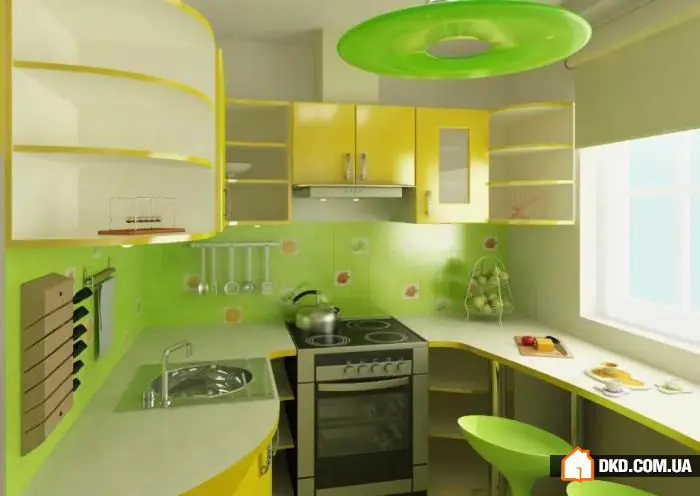 Fruit Paradise on Your Kitchen
Fruit Paradise on Your Kitchen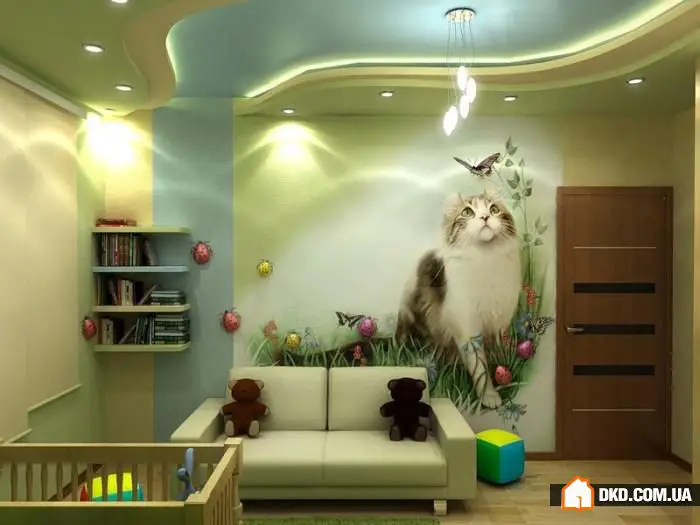 Funny Cats: Kids Room in Cat Style
Funny Cats: Kids Room in Cat Style How to Turn a Garbage Container into a Fashionable Element of a Country Interior
How to Turn a Garbage Container into a Fashionable Element of a Country Interior Enhancing the Garden Plot with Stones
Enhancing the Garden Plot with Stones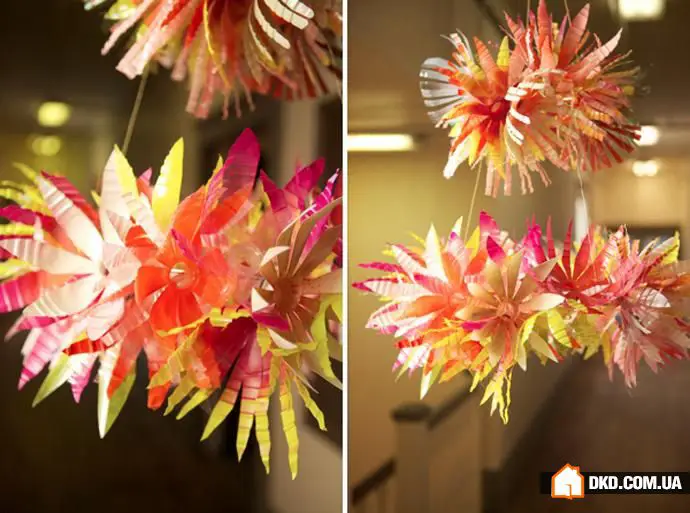 Handmade Crafts from Bottles
Handmade Crafts from Bottles